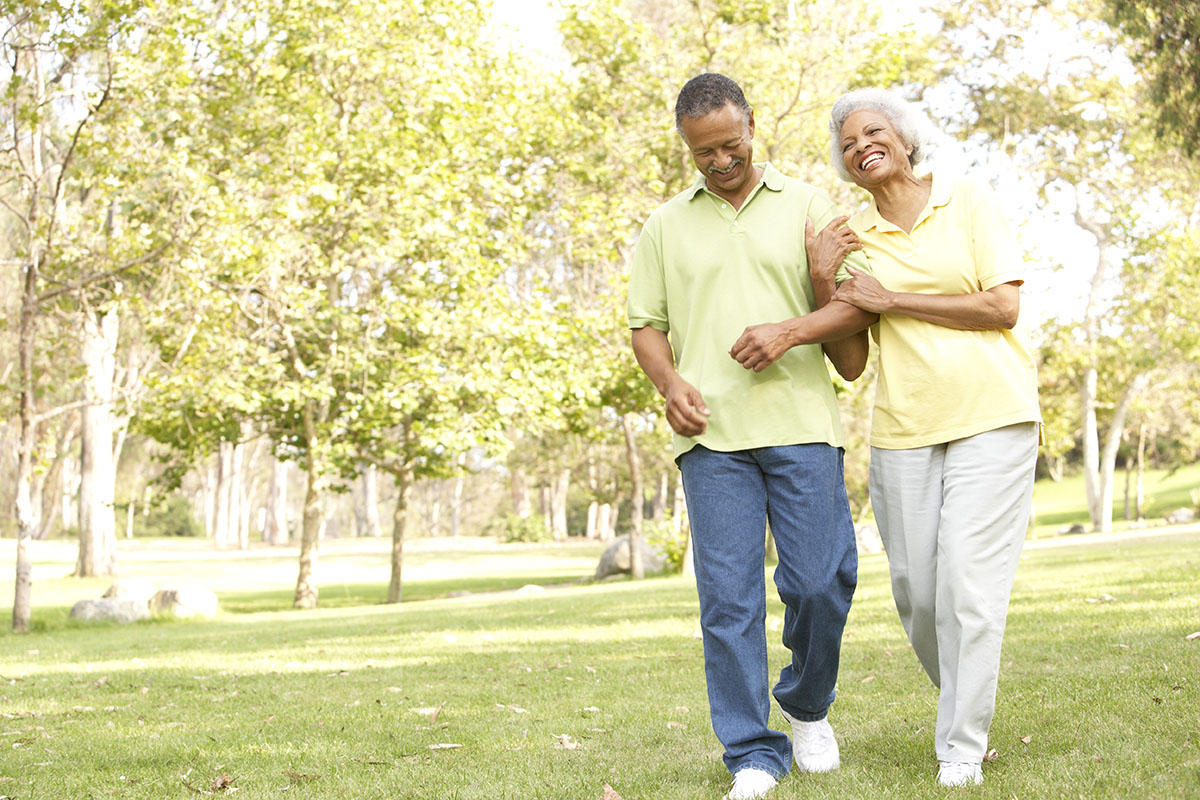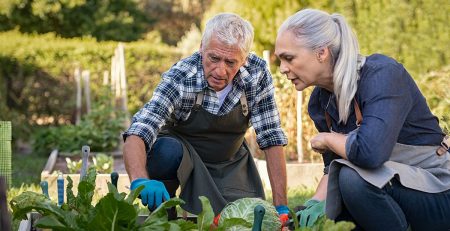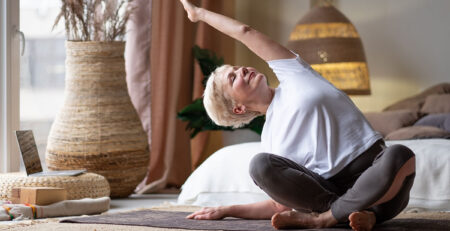Physical Activity and Life Satisfaction in Later Life
It’s a well-known fact that staying physically active has positive outcomes on one’s physical health. But did you know that physical activity, performing daily activities, engaging in work and being playful all have positive effects on life satisfaction, happiness and psychological well-being in later life? It’s true! While mental health plays an important role in later-life satisfaction, let’s focus on physical activity.
Physical Benefits of Moving Around
Physical activity in later life means anything you do that keeps you moving around as much as possible. It can include activities such as walking, jogging, dancing, taking the stairs, housework, and gardening. It also means doing things you enjoy while in motion. Taking long walks at a park, riding a bike, or playing golf or tennis are good examples.
Physical activity also means moving your body and skeletal muscles and expending energy for short or moderate periods of time. This type of activity is associated with so many health benefits, there are too many to list in this article. Regardless, it’s known that good physical activity is associated with prevention of heart disease, diabetes, obesity and it improves overall immune function.
Life Satisfaction: An Outcome of Physical Activity
Beyond the physical benefits of regular activity, there are a number of psychological benefits, and perhaps the greatest is a strong sense of life satisfaction in later adulthood. Life satisfaction can be defined as one’s evaluation of his or her own life based on the factors and features considered to be the most relevant and important.
While everyone’s ideas concerning life satisfaction are different, there is still a connection between staying physically active and experiencing greater life satisfaction in later life. But what is the connection? What is it about moving around, working, doing chores, and playing golf that creates this sense of satisfaction?
The Importance of Playfulness
Older adults who exercise, practice yoga, go bowling, dance or swim also tend to be playful. Adult playfulness is positively associated with greater life satisfaction as well as an inclination to become engaged in activities that are both physically involved and playful. This can be referred to simply as an active lifestyle. Playful adults are generally viewed as those who enjoy amusement, humor and entertainment. They are also characterized as cheerful, light-hearted, fun, spontaneous and intellectually curious. Playful people also enjoy leisure activities. All of these are associated with greater life satisfaction.
The Role of Work as Physical Activity in Later Life
It has been established throughout research that older adults who work full- or part-time appear to benefit from happiness, increased life satisfaction and well-being. Some studies show that working older adults use their time more wisely when they are not working and find more experiences of momentary happiness. They experience more happiness during relaxing activities and on the weekends.
Self-Perception: A Powerful Source of Life Satisfaction
An important finding in the research in the area of physical activity and life satisfaction is that playful adults perceive themselves as physically active, and perceptions can be rather powerful. In the case of life satisfaction, playfulness is associated with the satisfaction of personal, intrinsic goals with physical health being one of the most important. The positive emotions experienced through self-perception of being physically active can be helpful in facilitating physical resources including coordination, strength and cardiovascular health.
Final Thoughts on Physical Activity and Life Satisfaction
Great life satisfaction is a key component of successful aging. It appears that physical activity, work, and being a playful person can positively influence life satisfaction. This is good to know because many people believe their life satisfaction is tied to their genetics, social environment, and changing life circumstances, like growing older and losing independence. Perhaps it is best to grow older and younger, with our inner playful child leading the way.











